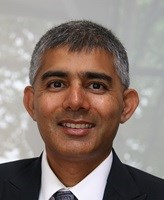
When I started at EY, there were very few black role models in the accounting profession. So I sought guidance and mentorship wherever I could, not from any one source. I was made the firm's youngest partner at age 27, but I'd made sure that I had the experience to handle the increased responsibilities. I took on experiences a lot earlier; got to do them and do them well - that's how I earned my promotions. You cannot bypass experiences and get fast-tracked - we see this when people get moved up the ladder without the experience to back them up, then later on they encounter problems. At the same time, I was keen to show that a person from a less privileged background could take advantage of all the opportunities if he was prepared to put in the hard work.
Most people follow the herd. You go to varsity because your friends are going; you do a course your parents recommend. But ask young people where they'll be in three years' time and most won't have a clue; most people don't think seriously about the future. Working with purpose involves some thought - what am I hoping to achieve? What is the long-term game plan? And if the answer to "What is the purpose of our business?" is, "To make a profit," your thinking is very short term. That doesn't build sustainable businesses, and it certainly doesn't build communities. At EY, we now define the firm's purpose not in financial terms, but as, "To create a better working world for people, clients and communities". The rewards - whether financial, social, reputational or personal - inevitably require purpose. They seldom precede the identification and achievement of purpose.
I think the root of a general lack of purpose is a problem common in both schools and homes: children not being taught to question properly. We were taught "Question; analyse; assess - only when something makes logical sense, accept it". Our kids are never taught that. As parents, it's easier to go, "Just do as I say"; teachers tend to want to give you the answer, instead of teaching you to think. Everything boils down to choice. But how do we make choices; what is the technique? You either rely on emotions, or intellect - analysis, assessment, weighing up pros and cons. Most of us rely on emotions, if we haven't been taught to choose rationally. We need to train young people in that technique. Once they can make rational choices, they can apply that to defining their purpose - the only way to plan a successful career and life path.
There are three ways to respond to change, whether on a personal level or in business. Some ignore it and hope it will go away, others embrace it fully from the word go, and some get very anxious about change: "How will this affect me?" Again, it boils down to emotions versus intellect. We need an introspective approach, to understand what this change means to us, personally, and why the change is necessary. Once you do that, it is a lot easier to see the benefits of change, and get everyone on board with it.
If anything, the "leadership crisis" in South Africa's public and the private sector is a failure of trust. To turn it around, it's essential that leaders in business and government begin to trust each other and work together towards common goals. Establishing an honest, honourable and common purpose, driven by rational assessment, is an essential first step in building that trust.